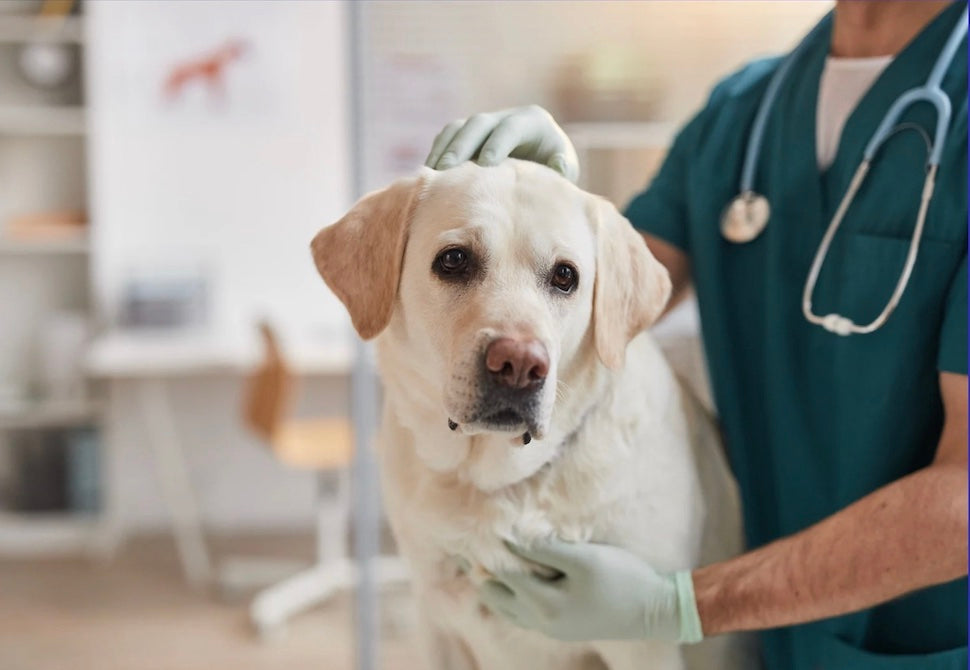Understanding Aging Issues in Dogs: A Comprehensive Guide

As dog owners, we cherish every moment spent with our furry companions. However, as they age, it's essential to understand the unique challenges and health issues they may face. Just like humans, dogs experience a range of changes as they grow older. Recognizing these aging issues and knowing how to address them can help ensure our pets live comfortable and happy lives in their senior years.
Common Aging Issues in Dogs
-
Arthritis and Joint Problems
-
Symptoms: Difficulty getting up, reluctance to climb stairs, stiffness, and limping.
-
Management: Provide joint supplements, ensure a comfortable sleeping area, and consider physical therapy or prescribed pain relief from a veterinarian.
-
-
Cognitive Decline (Canine Cognitive Dysfunction)
-
Symptoms: Disorientation, changes in sleep patterns, house soiling, and decreased interaction.
-
Management: Engage your dog in regular mental stimulation through puzzles and new activities, maintain a routine, and discuss medications or supplements with your vet.
-
-
Hearing and Vision Loss
-
Symptoms: Not responding to commands, bumping into objects, and changes in eye appearance.
-
Management: Use visual or tactile cues instead of verbal commands, keep the environment consistent, and ensure your dog's safety by blocking off dangerous areas.
-
-
Weight Management
-
Symptoms: Unexplained weight gain or loss, decreased activity levels.
-
Management: Adjust diet to maintain a healthy weight, provide regular, low-impact exercise, and have regular vet check-ups to monitor overall health.
-
-
Dental Issues
-
Symptoms: Bad breath, difficulty eating, excessive drooling, and swollen gums.
-
Management: Regular dental check-ups, provide dental chews or toys, and consider professional cleanings if recommended by your vet.
-
-
Heart Disease
-
Symptoms: Coughing, difficulty breathing, fatigue, and fainting spells.
-
Management: Follow a vet-prescribed diet, administer any medications as directed, and limit strenuous activities.
-
-
Kidney Disease
-
Symptoms: Increased thirst and urination, weight loss, vomiting, and lethargy.
-
Management: Provide a special diet, ensure constant access to fresh water, and follow any vet-prescribed treatment plans.
-
Enhancing Quality of Life for Aging Dogs
-
Regular Veterinary Check-ups: More frequent visits to the vet can help catch and manage age-related issues early. Semi-annual check-ups are recommended for senior dogs.
-
Balanced Diet: Senior dogs often require a diet tailored to their age. Consult your vet about the best nutrition plan, which may include special senior dog food.
-
Exercise: While they may not be as active as they once were, regular, gentle exercise helps maintain muscle mass and joint flexibility. Activities like short walks or swimming can be beneficial.
-
Mental Stimulation: Keep your dog mentally active with new toys, learning new tricks, and interactive playtime to help slow cognitive decline.
-
Comfortable Living Environment: Provide a cozy and easily accessible sleeping area, and consider ramps or steps to help your dog navigate furniture or stairs.
-
Grooming: Regular grooming sessions are essential to keep their coat healthy and to monitor any changes in their skin, such as lumps or sores.
-
Supplements: Certain supplements can play a crucial role in enhancing the quality of life for aging dogs. Some beneficial supplements include:
-
NMN (Nicotinamide Mononucleotide): NMN helps boost NAD+ levels, which can enhance cellular energy production. This increase in cellular energy can improve overall vitality and reduce signs of fatigue and lethargy in older dogs. NMN supplementation also support brain health by improving neuronal function and protecting against oxidative stress, potentially slowing cognitive decline. NAD+ is also vital for maintaining healthy blood vessels and heart function. By boosting NAD+ levels, NMN may help support cardiovascular health, reducing the risk of heart disease in senior dogs. Chronic inflammation is a common issue in aging dogs, contributing to various age-related diseases. NMN's role in enhancing NAD+ levels can help modulate inflammatory responses, potentially alleviating conditions such as arthritis.
-
Probiotics: These support digestive health, which can become more delicate as dogs age.
-
Antioxidants: Vitamins E and C can help combat oxidative stress and may support cognitive function.
-
SAMe (S-Adenosylmethionine): This supplement can support liver health and cognitive function.
-
Milk Thistle: Often used to support liver function, especially in dogs on long-term medications.
-
When to Seek Veterinary Help
While some signs of aging are normal, certain symptoms warrant immediate veterinary attention. These include sudden weight loss, severe changes in behavior, persistent vomiting or diarrhea, difficulty breathing, and any signs of pain or distress.
Conclusion
Aging is a natural part of life, and with the right care and attention, your senior dog can enjoy their golden years to the fullest. Understanding the common aging issues and knowing how to manage them can make a significant difference in their quality of life. Always consult with your veterinarian for the best care strategies tailored to your dog's specific needs. By providing them with love, proper care, and regular check-ups, you can ensure your beloved companion remains happy and healthy as they age.
